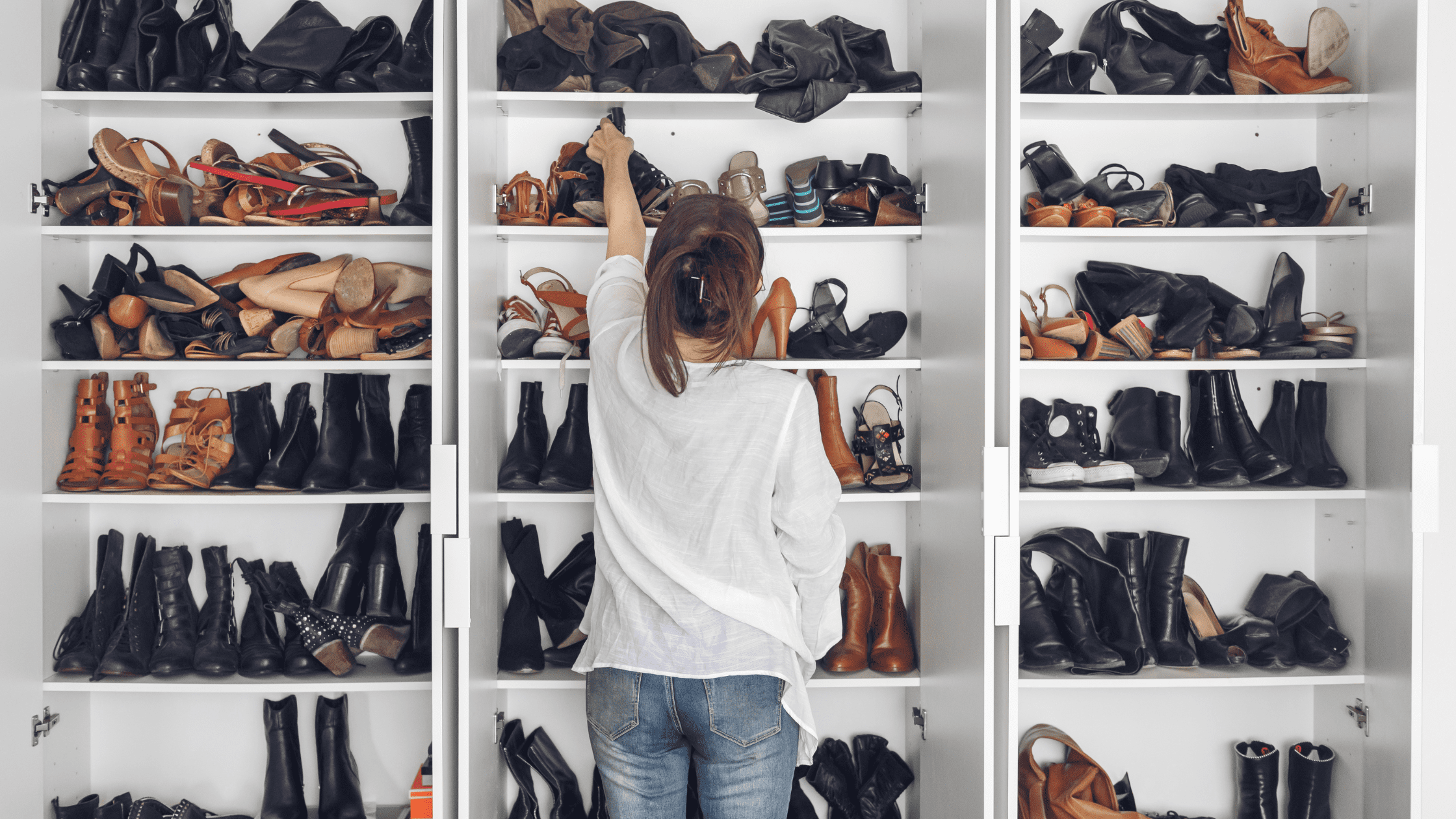
Finding the right shoes for foot pain may be the single best solution if you regularly suffer from aching feet. After a long, hard day, you deserve to kick back and relax. But that’s difficult to do when your feet cause such discomfort. The culprit in your struggles could be right in your closet, as ill-fitting shoes commonly cause foot pain – or at least exaggerate it.
Some types of shoes are obviously better than others. They may be fashionable, but if your shoes are not comfortable, they may need to go. Learn more about the top 5 worst types of shoes for foot pain, and discover solutions for discomfort in your feet.
1. Too Restrictive
You may want to lace up tightly or use a shoehorn to feel more secure in your shoes, but you may be working against your feet’s structure and purpose. The foot is a complex system of bones and muscle that requires flexibility to work properly. When shoes are too tight and do not allow for this flexion, foot pain and issues such as bunions, hammer toe, and corns can arise.
2. Too Small
Even in adulthood, our feet size can change, causing us to grow out of our shoes. This is because as you age, your arch naturally flattens, lengthening your foot and changing your shoe size. It’s not uncommon for adults to gain a full shoe size as they age.
Wearing shoes that are too small causes crowding and reduced flexibility, which significantly increases the risk for friction and foot pain and problems.
How to Know if Your Shoes Fit Properly
There are a few key metrics to look at when determining if your shoe fits properly, such as:
- Width: The ball of your foot should fit comfortably in the widest part of your shoe.
- Depth: Make sure the shoe’s toe box can fit your toes without rubbing against the top.
- Space: When standing, there should be about ½ inches (or the width of one finger) of space between your longest toe and the end of your shoe.
3. Too Pointy
Although pointy-toed shoes can look great with your outfit, they aren’t really designed for human feet. When shoes are too pointy and don’t offer enough room in the toe box, your toes crowd together and it puts pressure on your big toe. Eventually, this can lead to more serious foot problems such as painful bunions.
4. Too Tall
Just like those chic pointy toes are bad for you, tall heels can be killer. The higher your heel, the more pressure and torque on your joints the shoes inflict. Doctors agree that high heels over 2.5 inches in height are the most dangerous shoes on the market.
Tall high heels also put extra pressure on your heel, which can lead to serious conditions such as plantar fasciitis. Just an extra inch of lift in your heels can cause significantly more aches and pains in your feet.
Suffering from plantar fasciitis? See how we can help!
5. Too Flat
If your shoes aren’t meant to be tall, you could assume that means the flatter, the better. However, shoes are made with an arch for a reason: to support your feet. When you wear shoes with poor support, your foot muscles compensate while you walk, flexing tightly to provide arch support.
Unfortunately, various types of flat shoes are very popular, from ballet flats to flip flops to even popular sneakers such as Converse. After a long day in these kinds of flat shoes, your arches may ache simply because they’re worn out.
However, this lack of arch support can overstretch, tear, or inflame your plantar fascia, which is the band of tissue that runs along the bottom of your foot. Extended lack of support and increased pain can lead to plantar fasciitis, which causes intense heel pain.
Find Comfort with Shoes for Foot Pain
Discovering that your shoes might not be helping your foot pain is the first step towards a better relationship with your feet. There are a few options you can try to further increase your foot health.
- Preventative Care: By avoiding the worst types of shoes for foot pain as listed in this article and opting for shoes that offer proper support for your feet, you can help avoid developing more serious foot problems and find relief from your pain.
- Seek help: If you believe your foot pain is beyond your control, we are here to help you. Take a look at our services for foot and ankle care to see how we can assist in healing your pain.
Suffering from chronic foot pain? Schedule a consultation with one of our foot and ankle specialists today!
